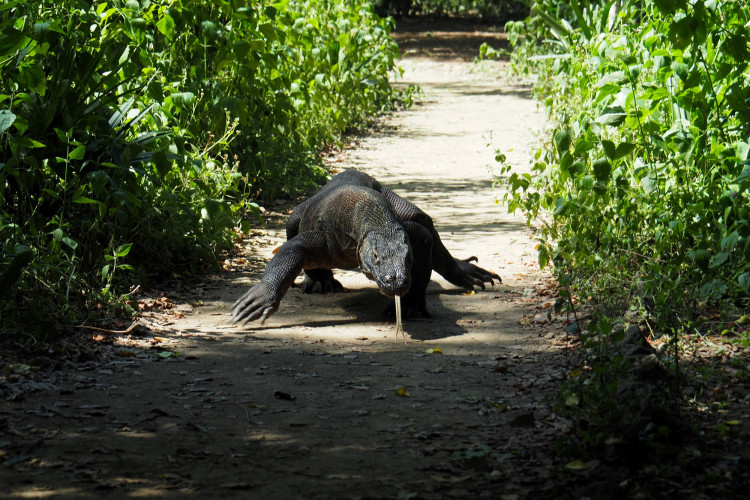The Komodo dragon may become extinct within the next century as rising sea levels threaten to submerge its habitat.
Given that there are fewer than 1,400 adult dragons alive in the world, and that their distribution is limited to a handful of Indonesian islands, the International Union for the Conservation of Nature (IUCN) decided to update the reptile from the category of Vulnerable to Endangered.
A report from the conservation organization last week exposed how serious the situation has gotten for the Komodo dragon. Human and natural threats to its habitat have been identified as explanations for the shift.
Komodo dragons have venomous saliva and can easily take down a water buffalo, growing up to 10 feet long. Only the Komodo National Park, a UNESCO World Heritage Site, and a few nearby islands are home to them.
They are a protected species that only comes into contact with humans on rare occasions, with only a few documented human attacks.
The most extreme predictions suggest that the dragons could lose up to 71% t of their habitat in the next 45 years, as rising global temperatures cause low-lying areas of islands to sink beneath the sea.
By 2050, their already low numbers may have been reduced by a third. The species' limited ability to disperse makes it even more vulnerable to extinction.
Human activity has resulted in significant habitat loss, as well as hunting for the same food resources, for some of the creatures living on the unprotected nearby island of Flores.
While rising sea levels are a major concern for conservationists, the Komodo dragon is also threatened by a number of other factors.
While much of the species' remaining habitat is protected within the Komodo National Park, where populations are thought to be stable, unprotected populations on the nearby Flores, which account for more than half of the dragons' occupied habitat, are described as being at 'ongoing risk.'
Island hunters often compete with dragons for the same prey, which has a particularly negative impact.
"The idea that these prehistoric animals have moved one step closer to extinction due in part to climate change is terrifying," Andrew Terry, conservation director of the Zoological Society of London, said in a statement.
If the population continues to decline, the Komodo dragon will be classified as critically endangered before being declared extinct in the wild.
It joins a long list of iconic species on the Red List, including the tiger, basking shark, and Asian elephant.






